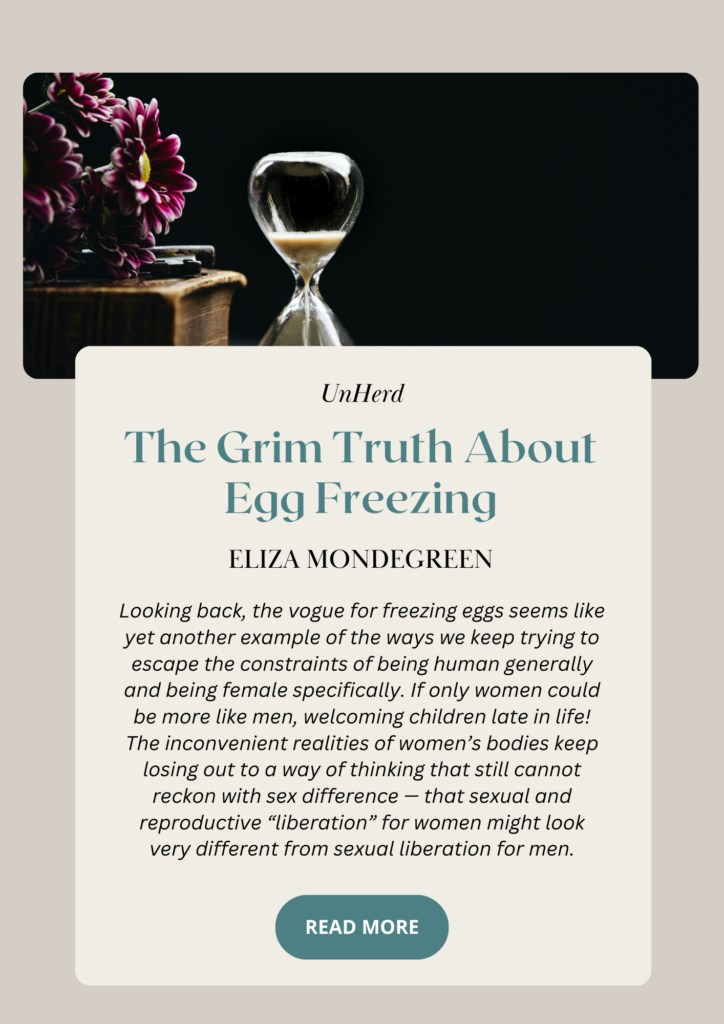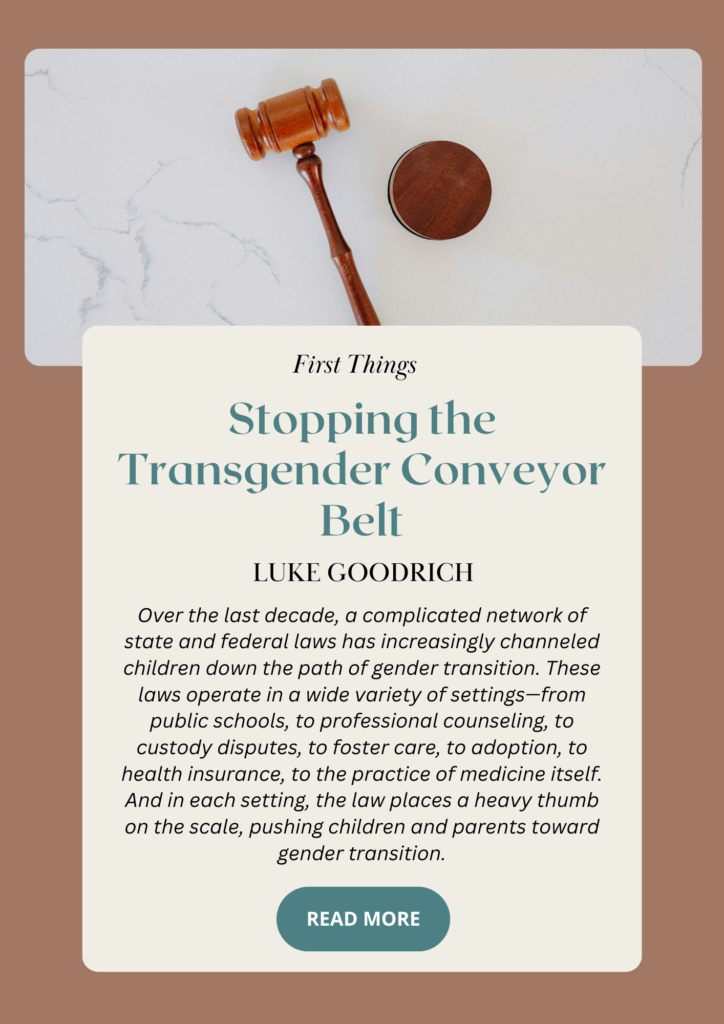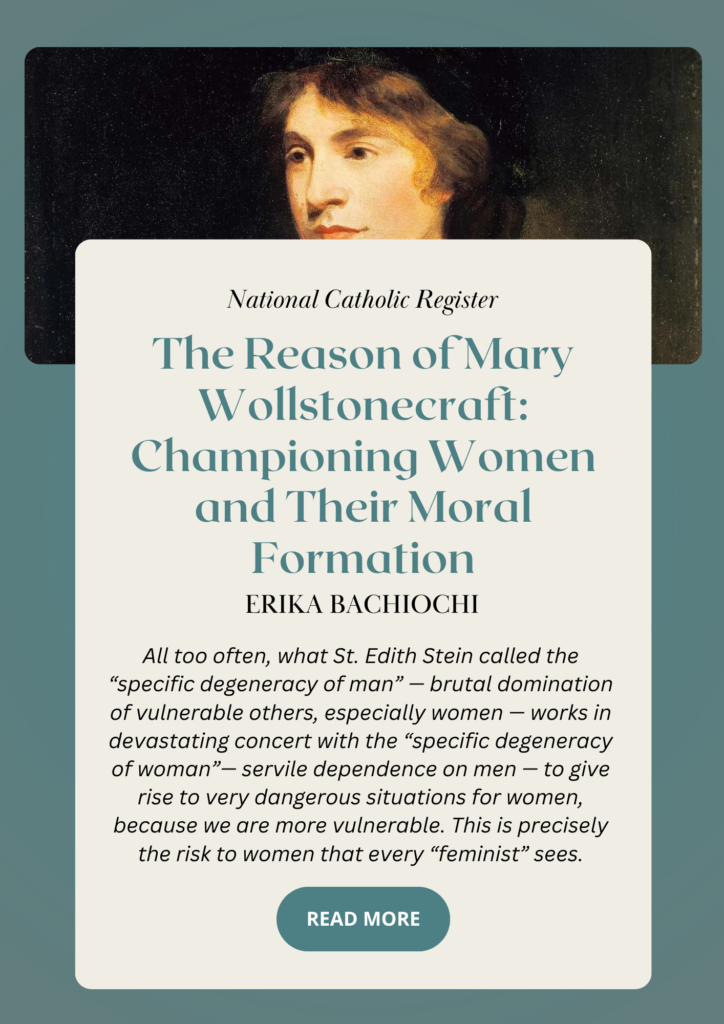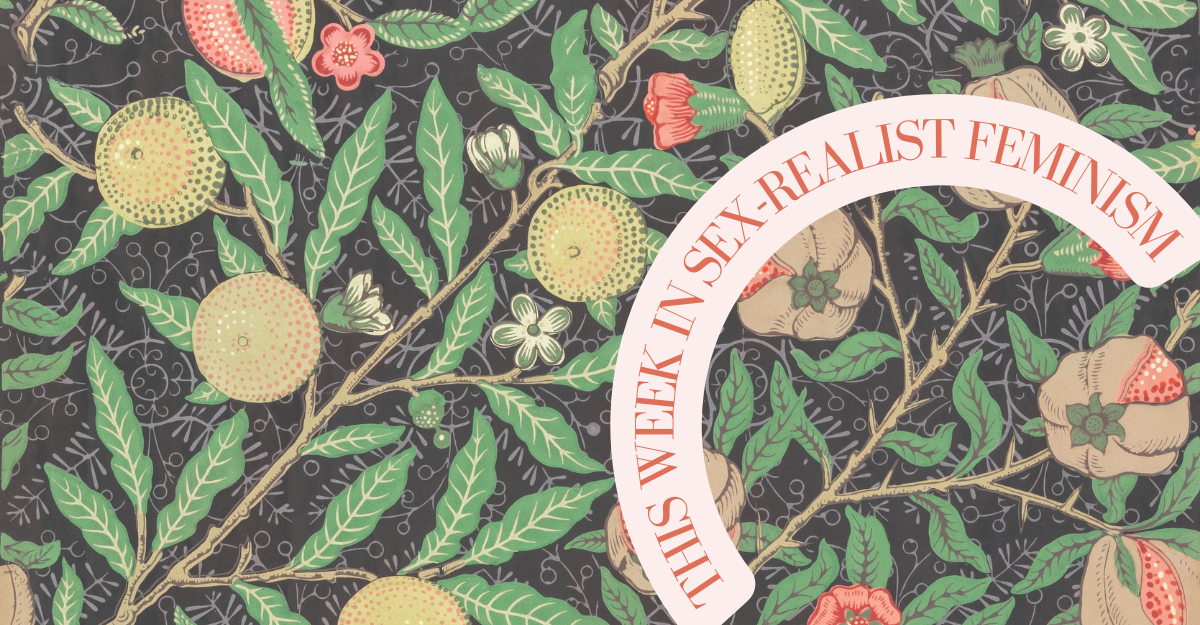Welcome to the weekly Fairer Disputations round-up: your one-stop shop for the best in sex-realist feminism. This week, Eliza Mondegreen on the false promises of egg freezing, Luke Goodrich on the transgender conveyor belt, Erika Bachiochi on Mary Wollstonecraft’s moral vision, Biden’s transgender extremism, the joy babies bring, what Jennifer Lahl is reading—and more!
First, Featured Author Eliza Mondegreen on why freezing your eggs isn’t the answer in the search for women’s equality. (On a similar topic, see Featured Author Leah Libresco Sargeant on IVF.)

Next, Luke Goodrich argues that law has begun to act as a “transgender conveyor belt”—but offers hope that it can be turned around.

Finally, Wollstonecraft Project Director Erika Bachiochi rejects the claim (made by Carrie Gress, whose book was previously reviewed at FD) that Christians should reject all forms of feminism—and suggests that Wollstonecraft’s vision for women should be deeply compelling, especially for Christians.

More Great Reads & A Listen:
- Biden’s Transgender Extremism, Darel E. Paul, Compact (paywalled)
- The Cass Effect, The Quillette Editorial Board, Quillette
- My Generation has Been Told Having a Baby is Too Difficult But No One Mentioned the Joy, Alice Vincent, The Telegraph
- The Modern Dating Catastrophe, Sex Recession & Population Collapse with Louise Perry, Triggernometry
What I’m Reading: Jennifer Lahl

I am reading a new report published in the journal Fertility and Sterility, which looks at the growing numbers of people who are coming to the U.S. to hire American women to be surrogates. Because of my interest in assisted reproductive technologies and maternal child health, this report is quite worrisome as it shows over 40% of internationals coming to the U.S. are single men, over 42 years of age, and mainly from China.
At the recommendation of a health and science reporter I follow on X, I just started reading The Emperor of All Maladies: A Biography of Cancer. The author won The Pulitzer Prize in 2011, so I’m wondering how I could have missed this fascinating book. It is both historical as well as clinical and deeply personal about those with cancer and the physicians and scientists aiming to treat and cure those with cancer.



